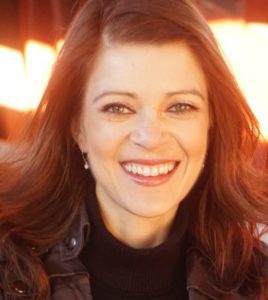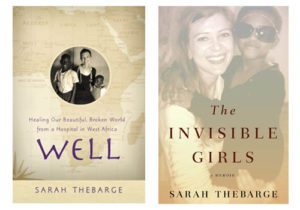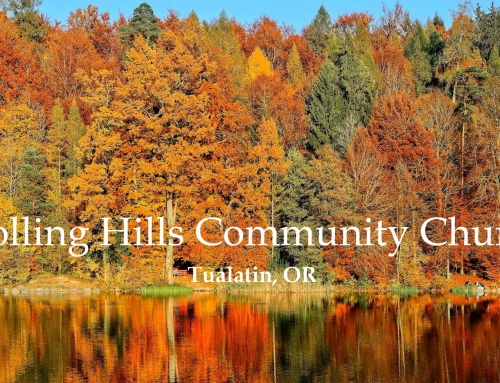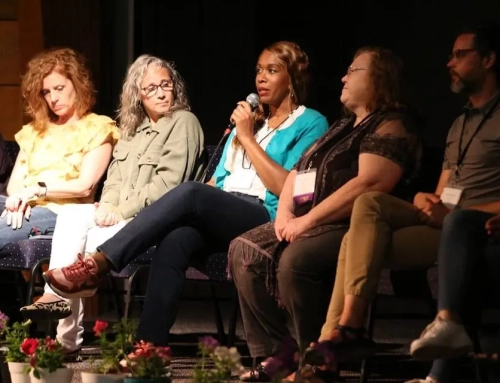By Sarah Thebarge
I started writing when I was in elementary school and my younger sister was diagnosed with a serious heart condition. She underwent two open-heart surgeries and spent many months in the hospital. My parents spent a lot of time with her at the hospital, so I ended up retreating to my bedroom closet with a notebook, writing down all the feelings and questions I had that I was too afraid to say out loud.
I kept writing through life’s ups and downs. But, I found, mostly through life’s downs. I wrote myself through my brother’s deployment to Afghanistan, a few difficult break-ups, and the death of a close friend. And then, when I was diagnosed with breast cancer at age 27, I wrote even more.
While I was undergoing chemo and radiation, I started my first blog, which I called My Tropic of Cancer. Writing a blog post was like going to a counseling session. Writing gave me the opportunity to get thoughts, fears, and ideas out of my head and share them with someone else. Writing forced me to find words to articulate how I was really doing. Writing let me share the burden of my life-threatening diagnosis with people who cared about me.
Several years after my cancer diagnosis, I published a memoir called The Invisible Girls, which is about meeting a Somali refugee family on the MAX train in Portland while I was recovering from my treatments. Since then, I’ve had the opportunity to travel around and tell about the story—and the work of redemption God did in my life and in the lives of the five Somali sisters I wrote about in the memoir.
Many people have asked if it’s painful for me to talk about my cancer experience. And I realized something as I was trying to formulate an answer to their question. No, it doesn’t hurt me to talk about the shocking diagnosis, the excruciating pain, or the anxiety and fear I faced.
Why? Because I was able to write myself through it.
This is what I love most about writing, and why I love helping other people write their stories too: because the process of writing turns wounds into scars.
Wounds bleed and cause pain, but scars are wounds that have been healed—wounds that no longer bleed and no longer cause pain.
Telling your story is healing because it gives you control of an experience that has often seemed chaotic and out of control. Telling your story is healing because it helps you share the experience with others. Telling your story is healing because it brings closure—you can write it from beginning to end and move past it. And telling your story is healing because it gives hope to others who may be facing a similar situation, which brings redemption for you and for them.
There’s a Swedish proverb that says, “Shared joy is a double joy; shared sorrow is half a sorrow.” I have experienced the truth of that proverb! Writing is a gift for both the writer and the reader.
I’m looking forward to continuing to write—and helping others find and tell their stories as well—so we can all continue to receive the wholeness and healing God brings.
 Sarah Thebarge, is an author, blogger, and international speaker. Her writing has appeared in Christianity Today, The Huffington Post, Relevant, National Geographic, and USA Today. She’s the author of the memoirs The Invisible Girls and Well: Healing our Beautiful, Broken World from a Hospital in West Africa. The Invisible Girls was chosen as the “First Year Experience” book for incoming freshman at Mississippi State University, where Sarah delivered the convocation address in 2014. She lives in San Francisco. Sarah will be teaching a seven-hour class, “The Healing Power of Your Story,” at the 2018 Oregon Christian Writers Summer Conference.
Sarah Thebarge, is an author, blogger, and international speaker. Her writing has appeared in Christianity Today, The Huffington Post, Relevant, National Geographic, and USA Today. She’s the author of the memoirs The Invisible Girls and Well: Healing our Beautiful, Broken World from a Hospital in West Africa. The Invisible Girls was chosen as the “First Year Experience” book for incoming freshman at Mississippi State University, where Sarah delivered the convocation address in 2014. She lives in San Francisco. Sarah will be teaching a seven-hour class, “The Healing Power of Your Story,” at the 2018 Oregon Christian Writers Summer Conference.









